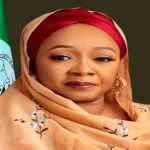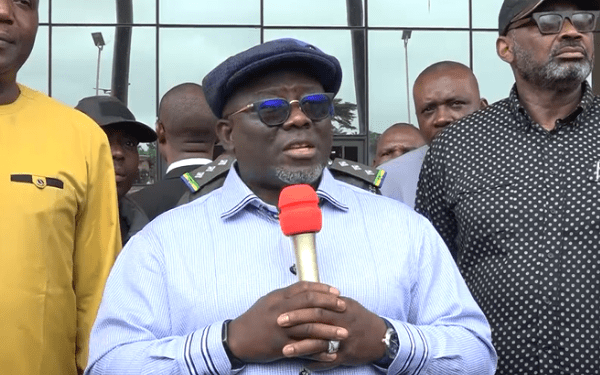In a nation where citizens’ wellbeing often takes the back seat to other political priorities, Delta State Governor, Rt. Hon. Sheriff Oborevwori, has distinguished himself as a leader committed to making quality health care accessible and affordable for all Deltans and residents.
Since assuming office, the governor has focused on ensuring that Deltans, regardless of their socio-economic status, have access to quality healthcare.
This commitment is embedded in his “MORE Agenda”, which stands for Meaningful Development, Opportunities for All, Realistic Reforms and Enhanced Peace and Security.
Quality healthcare remains a pivotal pillar of the MORE Agenda, as the governor recognises that a healthy population is the sure foundation of sustainable societal stability and economic prosperity.
His administration’s bold reforms in the health sector reflect a clear understanding of its challenges and the urgent need for enduring effective solutions.
Strengthening Primary Healthcare Governor Oborevwori’s administration has prioritised strengthening primary healthcare, the cornerstone of any robust health system.
Substantial investments have been made to renovate and equip primary healthcare centres across Delta’s 25 local government areas.
These efforts have brought functional healthcare facilities closer to under-served communities ensuring basic medical services are readily available.
The administration has equipped these centres with essential medications and qualified healthcare personnel, providing much-needed services such as antenatal care, immunisations, and treatment of common illnesses.
Special emphasis has been placed on maternal and child health care, with a marked increase in access to skilled birth attendants and antenatal services.
These initiatives have significantly reduced the maternal mortality rate and improved health outcomes for women and children, fostering trust in the state’s public health systems.
Upgrading Secondary and Tertiary Healthcare The Oborevwori’s administration has equally made strides in improving secondary and tertiary healthcare systems.
General hospitals and tertiary health institutions such as the Delta State University Teaching Hospital (DELSUTH), Oghara, have undergone significant upgrades.
Modern medical equipment, including Magnetic Resonance Imaging (MRI) machines, CT scanners, and dialysis units, have been acquired to improve the quality of specialised care available in the state.
In addition, the administration has addressed the perennial issue of brain drain by actively recruiting and training medical personnel.
By offering competitive remuneration and creating a conducive work environment, Delta State is becoming an attractive destination for healthcare professionals, reversing the trend of talent migration. Establishment of Health Institutions.
The governor’s vision for an integrated healthcare and education system has led to the establishment of two landmark institutions: the College of Health Technology in Ovrode and the College of Health Sciences at Southern Delta University, Ozoro, Isoko North Local Government Area of the state.
These colleges aim to address the critical shortage of skilled healthcare professionals, while positioning Delta State as a hub for medical education, and services.
College of Health Technology, Ovrode This institution focuses on training mid-level healthcare professionals, including community health workers, laboratory technicians, and environmental health officers. Its establishment is a significant step toward capacity building, improved healthcare access, and youth empowerment.
Equipped with modern lecture halls, laboratories, and hostels, the college offers world-class education and practical training with modern healthcare facilities.
It provides young people with skills in highdemand fields, reducing unemployment and contributing to the state’s socioeconomic development.
College of Health Sciences, Southern Delta University, Ozoro The College of Health Sciences is a centre for advanced medical education and research, offering degree programmes in Medicine, Nursing, Pharmacy, Public Health, and Medical Laboratory Science.
The institution focuses on producing healthcare professionals equipped to address both local and global health challenges. This initiative aims to curb brain drain by providing high-quality medical education within the state.
It also enhances the quality of care in tertiary hospitals and specialist centres, while attracting students, researchers and funding from across the country. This positions Delta State as a leader in healthcare and education innovation.
Universal Health Coverage Through the Delta State Contributory Health Commission (DSCHC) Another cornerstone of Governor Oborevwori’s health policy is the Delta State Contributory Health Commission (DSCHC), designed to ensure that every Deltan has easier access to affordable healthcare.
This initiative provides coverage for routine checkups, major medical procedures, and care for vulnerable groups, including children under five, pregnant women, and the elderly.
By December 2024, over 2.4 million residents—more than 40% of Delta State’s population—had enrolled in the DSCHC, making it a leader in health insurance in Nigeria.
The scheme’s success is bolstered by subsidies, partnerships with donor agencies, and the introduction of specialised plans like the Equity Health Plan, which offers free care to vulnerable populations.
Addressing Public Health Challenges Oborevwori’s administration has also tackled pressing public health issues such as malaria, HIV/AIDS and non-communicable diseases.
Through awareness campaigns, free testing and treatment programmes, and the distribution of insecticide-treated nets, significant progress has been made in combating these diseases.








